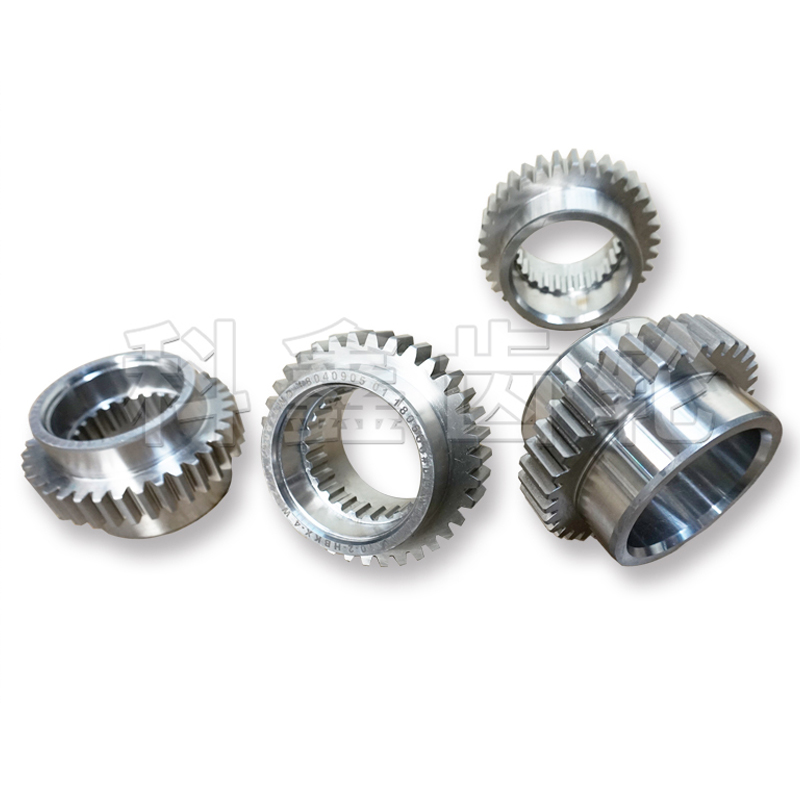Cylindrical gears are crucial components in various mechanical systems, playing a fundamental role in transmitting power and motion. To ensure their optimal performance and longevity, it is essential to implement a systematic and proactive maintenance approach. In this guide, we will explore key strategies for maintaining cylindrical gears.

Inspecting and cleaning cylindrical gears regularly is the first step in ensuring their longevity. Over time, gears accumulate dirt, debris, and lubricant contaminants that can compromise their efficiency. Periodic inspections help identify any signs of wear, pitting, or misalignment. Cleaning should be done using suitable solvents to remove contaminants without causing damage to the gear surfaces.
Proper lubrication is critical for the smooth operation and durability of cylindrical gears. Regularly check the lubrication system to ensure it provides sufficient and clean lubricant to the gears. Consider the gear's design and operating conditions when selecting the appropriate lubricant type and viscosity. Maintaining the right lubrication level prevents excessive wear and reduces friction, contributing to extended gear life.
Misalignment is a common cause of gear failure. Regularly check for misalignment and correct any issues promptly. Misalignment can lead to uneven wear, increased friction, and premature failure. Proper alignment ensures that the gears transmit power smoothly and evenly, preventing unnecessary stress on the teeth.
Monitoring gear temperature is crucial in preventing overheating and premature wear. Elevated temperatures can indicate issues with lubrication, misalignment, or excessive loads. Regularly measure and record gear temperatures during operation. If temperatures exceed recommended limits, investigate and address the root cause promptly to prevent further damage.
Understanding and managing the loads placed on cylindrical gears is vital for their longevity. Avoid overloading gears beyond their design capacity. Excessive loads can accelerate wear and lead to premature failure. Regularly review the operating conditions and ensure that gears are not subjected to loads beyond their specified limits.
Monitoring the condition of gear teeth is essential for early detection of potential issues. Employ non-destructive testing methods such as visual inspections, dye penetrant testing, or magnetic particle inspections to identify cracks, wear patterns, or other defects in the gear teeth. Early detection allows for timely maintenance and prevents catastrophic failures.
Develop and adhere to a preventive maintenance schedule. A proactive approach to maintenance helps identify and address potential problems before they escalate. Regularly scheduled inspections, lubrication, and adjustments contribute to the overall health of best cylindrical gear, ensuring their longevity and reliable performance.
Ensure that maintenance personnel are well-trained and equipped with the necessary skills. Proper training enables maintenance teams to identify issues accurately, perform effective maintenance procedures, and make informed decisions. Investing in skill development enhances the overall reliability of the gear maintenance process.
By implementing a comprehensive maintenance strategy, cylindrical gears can operate efficiently and last longer. Regular inspections, proper lubrication, addressing misalignment, monitoring gear temperature, managing loads, tooth condition monitoring, preventive maintenance scheduling, and investing in training contribute to the longevity of cylindrical gears. A proactive approach to maintenance not only prevents unexpected failures but also ensures the continued reliability of mechanical systems. For more details please contact Kexin Gears
Copyright:@2020-2021
Comments Please sign in or sign up to post.
0
0 of 500 characters used